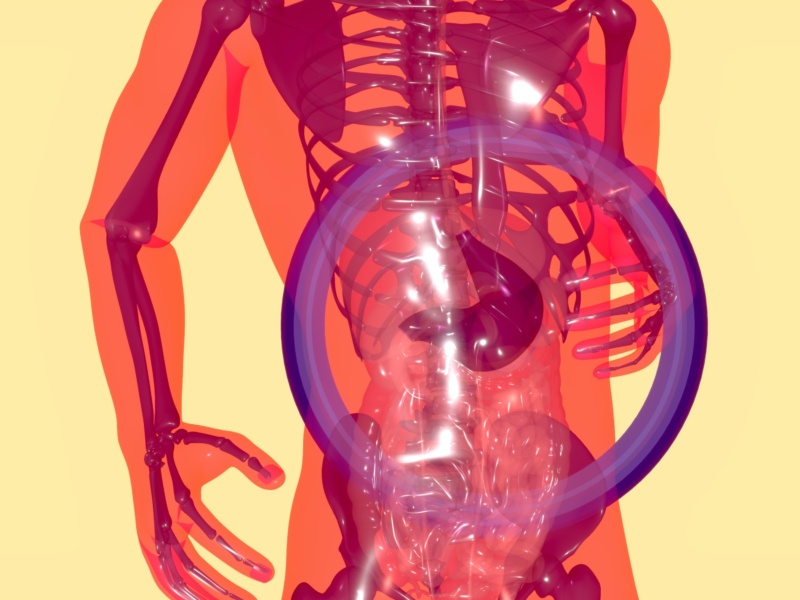Irritable Bowel Syndrome (IBS) is a chronic, long term condition that affects the large intestine / bowel. This typically includes stomach bloating, abdominal pain and, either or alternating, constipation and diarrhoea. It affects 5% of people at any one time and 15-20% of the population at some stage in their lives. It is more common in women. Although not life-threatening, it can be very uncomfortable and affect your quality of life. Symptoms must have been experienced for over six months in order to be diagnosed.
In IBS, there is a disruption of the gut-brain axis. The function of the gut is affected yet there is no visible physiological change. This differs from Irritable Bowel Disease (IBD) which includes conditions such as Crohn’s disease and ulcerative colitis. Doctors do not know specifically what causes IBS, though there are recommended treatments to reduce its severity and frequency of occurrence.
Symptoms of IBS
Symptoms range from mild to severe, and vary between people. Common symptoms include:
- Bloating of the abdomen
- Discomfort and pain that comes and goes in various parts of the abdomen
- Increased flatulence and burping
- Changes in bowel movement eg: diarrhoea, constipation or both; mucus appearing in stools; pellet-like or watery stools
- Feeling of urgency in getting to the toilet
- Sensation of not having fully emptied the rectum after going to the toilet
Possible contributors to IBS
There is no medical consensus on the cause of IBS. Some possible contributors include:
- An unhealthy gut microbiome
- Stress, anxiety and depression
- Infection such as gastroenteritis
- Sedentary lifestyle
- Personal ‘trigger’ foods
- Inflammation
- Certain medications
Treating and living with IBS
There is no one way of treating or reducing IBS. Success is likely to require trial and error, as everyone’s body is different. No part of the digestive tract is inflamed, even under a microscope, yet together, the parts of the gut don’t work well together. Some options include:
- Increasing your amount and regularity of exercise
- A low FODMAP diet: avoiding fermentable non-digestible foods (eg: onions, wheat, milk) that produce gas, leading to bloating and pain. See Useful Links below.
- Consuming a combination of prebiotics (doses of food the ‘friendly’ bacteria in the microbiome can feed on) and probiotics (doses of friendly bacteria)
- Managing psychological stress
- Avoiding gluten and hard to digest carbohydrates in the diet
- Managing anxiety and depression
- Limiting excess alcohol, caffeine and fizzy drinks
- Keeping a food and symptom diary to identify personal food “triggers”. Common triggers include gas-producing foods (eg: onions, cabbage, lentils, cauliflower, Brussels sprouts, legumes), artificial sweeteners (eg: mannitol, sorbitol, aspartame), alcoholic drinks, lactose-rich foods (eg: milk, cheese, some yoghurts, ice-cream)
- Drinking 8 glasses of water per day
- Using peppermint oil to help with symptoms.
Activities
- Walking
- Gardening
- Stretching
- Yoga
- Meditation and mindfulness
- Healthy home cooking
- Keeping a pet
- Swimming
- Listening to music
- Qigong
Useful links
- IBS Clinic – https://www.ibs.mindovergut.com/
- The Low FODMAP diet – https://www.monashfodmap.com/
